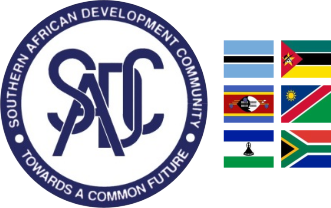SADC Member States recognise that trade is a stimulus and enabler of integration and that trade facilitation has become imperative. The 13th meeting of the Ministerial Task Force (MTF) on Regional Economic Integration held in July 2013 in Maputo, Mozambique, recognised that in consolidating the SADC Free Trade Area (FTA) there were challenges, particularly in the area of trade facilitation. The MTF noted that while SADC has made significant strides in eliminating tariffs, benefits derived from this process could be further maximised by improvements in trade facilitation. The Task Force further noted that there was need to prioritise reduction of border related trading costs, through effective coordination, rationalisation and simplification of trade procedures and documentation; enhanced efficiency in border operations, including business friendly operating hours; and improved cooperation in border management by Member States.
Accordingly, the Task Force directed the SADC Secretariat to develop a Trade Facilitation Programme (TFP). The TFP is a SADC-specific programme which addresses regional and Member States’ issues and is not related to the obligations imposed under the WTO Agreement on Trade Facilitation. It should be fully integrated into the SADC Agenda, not be perceived or treated as a stand-alone programme and should be owned and implemented by Member States. The programme takes a holistic approach to trade facilitation, building on SADC’s thematic initiatives to:
- Enhance regional and economic integration;
- Structural transformation of the SADC region by way of industrialisation, modernisation, upgrading and closer regional integration; and
- Reduce trade transaction costs in Member States by harmonising and simplifying trade procedures, initiating regional trade facilitation schemes, and guiding and supporting national trade facilitation.
The TFP is comprised of 28 activities which are built upon SADC’s thematic initiatives and priorities. The activities are clustered around four pillars: transparency, predictability, simplification, and cooperation.
As the owners of the TFP, SADC Member States are responsible for achieving programme goals and for ensuring the high-level commitment of government and the private sector necessary to reach those goals. The SADC Secretariat will coordinate TFP planning and implementation and Member States will provide input on TFP activities.
SADC Member States must maintain dialogue with the private sector in order to improve on trade facilitation processes and to make them sustainable and efficient while Member States will need to make one other accountable for the results. The impact of the programme is expected to be significant, and will benefit government and the private sector alike. Improved and simplified border procedures, standardised documentation, and rules consistently applied and clearly explained will:
- Reduce clearance times;
- Increase trader compliance;
- Lower costs;
- Lessen the burden on trade;
- Bolster export competitiveness;
- Increase intraregional trade; and
- Promote economic growth.


